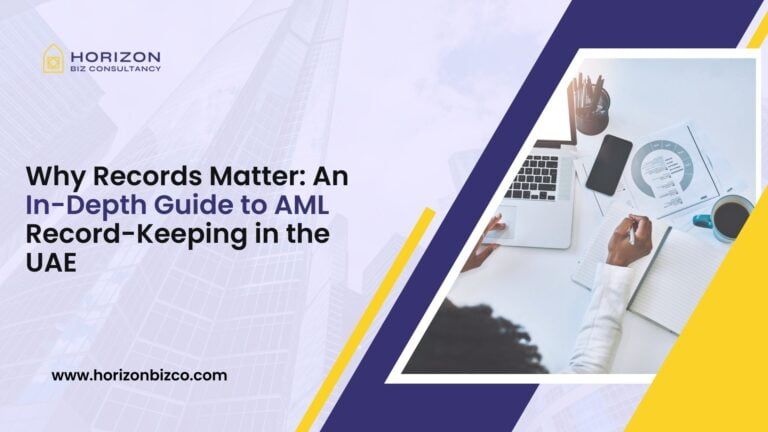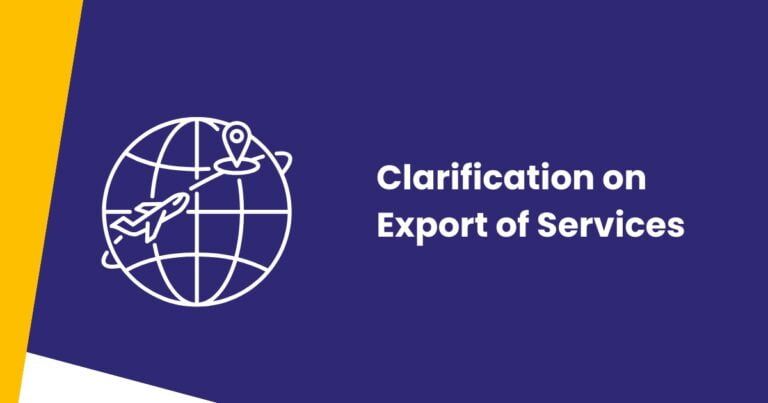Why Records Matter: An In-Depth Guide to AML Record-Keeping in the UAE
Running any UAE business has legal duties. They are about customer due diligence and financial record-keeping. These duties support anti-money laundering (AML) compliance. Recent updates to regulations also demand stricter KYC procedures. They also demand better transaction monitoring.
This article will explain what good AML record-keeping entails. We also outline consequences for non-compliance.
Conduct Thorough Customer Due Diligence (CDD)
The first pillar of an AML program is knowing exactly with whom you are dealing. For all customers, be they individuals or corporations, collectors extensive personal identifying information including:
- Full legal name (confirm spelling matches Emirates ID/passport)
- Proof of identity – obtain and validate details like nationality, visa, etc.
- Date of birth
- Phone number, email
- Residential/registered address
- Occupation/nature of business
- Source of funds or income
Double check provided information against UAE national databases like Emirates ID authority and accredited third-party screening tools. Maintain copies of ID documents, bank statements, incorporation papers etc.
For corporate clients also gather details on directors, shareholders, ultimate beneficial owner controlling over 10% stake.
Monitor Transactions Against Expected Behavior
Conducting due diligence once does not suffice. You must actively track account activity to ensure it matches the profile and expected behavior you have on file for that client.
For instance, frequent small transfers from Mr. Ahmed for minor purchases suddenly switching to large cash deposits monthly should trigger suspicion and further scrutiny.
In addition, review and reconfirm customer backgrounds every 1-2 years requesting updated KYC documents. This re-verification identifies any major status changes over time.
Log Financial Transaction Details
When transacting, keep records of all payments, transfers and receipts exceeding AED 55,000 in value. Capture key details like:
- Date/time conducted
- Payer and payee identities
- Transaction method – bank transfer, cash, cheque
- Currency and amount
- Purpose – goods/services purchased
Maintaining these audit trails linking clients to their activity enables spotting anomalies or suspicious patterns for reporting.
Store Records Securely for Minimum 5 Years
AML regulations mandate retaining related customer files and financial records for minimum 5 years post-engagement. Storage format can be physical or digital as long as complete data remains accessible for inspection.
Safeguard all information with encryption, multi-factor authentication and strict access controls allowing only essential staff. Follow protocols for secure paper document disposal after retention period.
Appoint Compliance Officer to Oversee Program
A well-documented AML policy manual tailored for your business is mandatory. It should cover:
- KYC and transaction monitoring procedures
- Employee training schedule
- Record storage/protection protocols
- Details on detection tools and reporting
Appoint a compliance officer to develop and enforce this risk-based program. Independent evaluations by auditors also help assess efficacy and ensure regulatory alignment.
Consequences of Non-Compliance
Penalties for inadequate AML records, reporting lapses or non-compliance can mean massive fines exceeding AED 5 million plus irreparable reputation damage.
In the worst cases, past precedents also indicate possibility of imprisonment for senior management of offending companies. Overall, non-adherence elevates risk of financial crimes using your firm.
Conclusion
Diligent record-keeping and compliance helps UAE enterprises build trust while preventing misuse. Ensure robust KYC processes, transaction monitoring, 5+ year storage and internal controls as outlined here. Contact us for any assistance implementing your AML program.
FAQs
Full legal name, ID documents, address, occupation, income proof, corporate ownership papers etc.
Minimum every 2 years requesting updated KYC documents.
All transfers, payments exceeding AED 55,000 in value.





